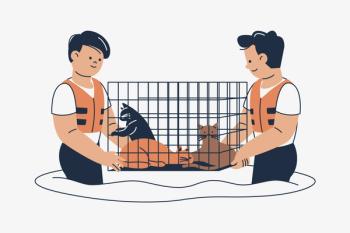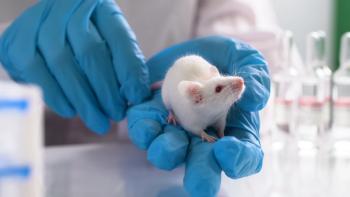
ISVMA fights proposed ban of gas for animal euthanasia
Springfield, Ill. - A proposed ban on the use of gas for animal euthanasia, considered inhumane treatment, has come under fire from state veterinary leaders who argue the procedure has merit and should not be outlawed completely.
SPRINGFIELD, ILL.— A proposed ban on the use of gas for animal euthanasia, considered inhumane treatment, has come under fire from state veterinary leaders who argue the procedure has merit and should not be outlawed completely.
The Illinois State Veterinary Medical Association (ISVMA) is seeking to alter the Humane Care for Animals Act amendment to limit the use of gas, not ban it completely.
Though considered humane and permissible by the American Veterinary Medical Association's Guidelines on Euthanasia, developed with support from the Humane Society of the United States, the method — banned in about eight states, according to the AVMA — came under attack as inhumane from Illinois lawmakers.
"The Illinois State Veterinary Medical Association opposes House Bill 4844, which seeks to restrict the options for euthanasia available to animal-control facilities in Illinois with an arbitrary, non-scientific interpretation of what is considered 'humane'," says Peter Weber, ISVMA executive director.
Similar legislation was proposed in North Carolina late last year, but amended before passage to continue allowing the method with stricter administration and animal condition standards.
An across-the-board ban of the method dismisses certain situations where gas may be safer and more effective than standard euthanasia procedures, Weber says.
"Euthanasia by injection is the preferred method by professionals ... in private-practice settings, where they work almost exclusively with companion animals that are properly socialized. However, safe physical restraint and handling of animals is not always possible in animal-control facilities," says Weber of the sometimes vicious, aggressive and dangerous animals in shelters.
When euthanizing these types of animals, "the appropriate use of commercially compressed carbon monoxide may be safer for staff as well as less stressful for the animals," he says.
ISVMA-proposed amendments to the ban — quantifying in statute that injection is the preferred method of euthanasia, allowing only county animal control to use the gas method and requiring authorization from a control facility supervisor that using gas is in the best interest of the animal or staff before it is administered — were rejected by state lawmakers.
At press time, the bill was under review.
Newsletter
From exam room tips to practice management insights, get trusted veterinary news delivered straight to your inbox—subscribe to dvm360.




